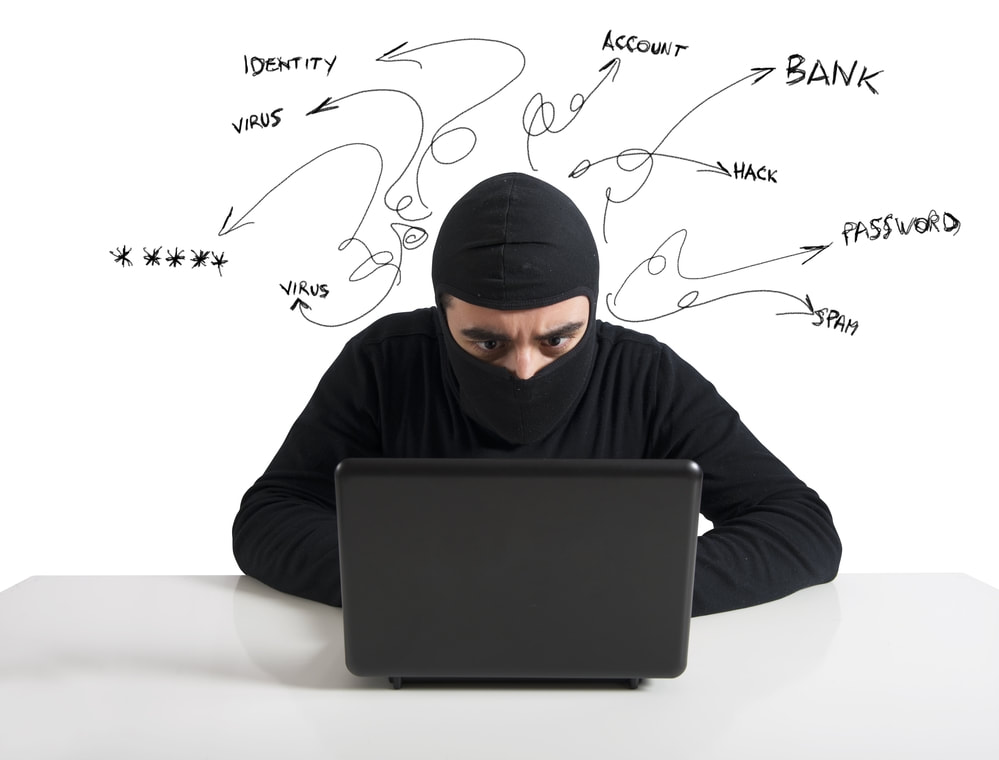|
If you like being tracked and having your personal information spied on by bots and ill-intentioned people, you can stop reading now. Otherwise, keep reading to learn how to spot hackers before they spot you. Based on facts from the McAfee security site, there are a few ways to tell if you’re looking at a fake email, a fake website, or having an encounter with a hacker!
Hackers can use a fake URL that’s slightly different from the actual site to trick you into thinking your information is being put into the correct platform. McAfee recommends some easy ways to double check this. When using a laptop or PC, you can “hover your mouse over the link” to see if the link is identical to the site its supposed to be on. Through a phone, tablet, or other smart device you can preview the link in order to see the URL before going to the targeted site. On a duplicate website, McAfee says that upon entering a wrong password the fake website will accept it. If you’re ever suspicious that the site might not be real go ahead and test out this method! However, if you’re opposed to checking the links and entering fake passwords every time you want to enter a new site, it’s beneficial to use an imbedded security system (Like McAfee) that checks cites for you. Have you ever gotten emails or pop ups asking for your private information? NEWS FLASH real inquiries will never ask for social security, PIN, or card numbers through your email or through a website pop up. For emails specifically, always be sure to check the senders address. In their security blog, McAfee uses a Bank as an example. If your bank sends you an email from a public account such as “Hotmail, Gmail, Yahoo!, etc.” Hint, hint-- it isn’t your bank. A fake Apple email was sent to me by a scammer claiming that my Apple ID had been disabled and that I had to fill out information to fix the problem. The email looked authentic except that the Apple logo was in a box, which I didn't pick up on till later. The website I was directed to also looked exactly like the mobile Apple website. It wasn't until the following page, which asked for my credit card information, that I realized it was a scam. Unfortunately, I had already given them my name, birthday, number, Po Box, and SSN number. Huge bummer. I called Apple right away, and they had already been getting numerous calls about these scammers and were on the prowl to shut them down. I gave them all the information I could, but that's really all I could do on my end besides hope that the hackers were found and put in jail. The first mistake I made was not checking the senders address which was hidden within the email "Sent From" section under the "Apple ID" name and was a crazy long compilation of letters and numbers. An obvious scammer. Another mistake I made was not noticing that they didn't address me by my name. Any bank or other legitimate, personable, non-bot company such as Apple will always address you by your name. If the sender doesn’t have your name on an email, they’re either horrible at sending emails or they’re fake! Do not give them your information! If you’re still suspicious and don’t trust me, give them a call and find out if it’s them or not for yourself. Call the actual company, not the number given on the email. Also try logging into your account before clicking on any links to ensure your account is actually fine. Now that odd email addresses are covered, have you ever had a friend email you with their actual email address asking you specifically for quick cash? The Gaurdian talks about an instance where they had a man email them in dire need of money because of a horrible circumstance he found himself in. Needless to say, someone hacked into his email account and sent multiple almost believable emails asking for money to an employee at this company and all of his Gmail contacts. One indicator of a hacker who got into a real account is when they reach out to multiple people for speedy help, instead of just their immediate family or personal friends. It’s important to be skeptical towards persistent asks for personal information or cash favors on any platform. Also keep a look out for other mistakes found in spam/hacked emails like misspelled words, odd or out of country phone numbers, and bad quality photos. By now you must be thinking, “okay but what do I do if I do get these emails? Or enter these websites? How do I stop it?” First of all, if you suspect that you’ve already been hacked, I recommend calling your bank to process any fishy activity on your account. If you feel like your accounts are fine, simply get off the webpage, clear it from your history so it doesn’t pop up if you ever search for the real site again, delete the emails and don’t worry. Viola.
1 Comment
6/14/2020 06:37:49 pm
There are people who will use the benefits of technology to do bad things. These are the people who are knowledgeable about codes and in this way they are called hackers. Let us secure our accounts in the internet and always be mindful of the different sites that we are checking for there might be some consequences that we do not want. It is better to be careful in these times.
Reply
Leave a Reply. |
Our AuthorSamara Towers does We Are More's PR & Marketing which includes writing our blogs! She was born and raised in Hawaii and graduated from Corban University with a Bachelors Degree in Creative Writing. She produces content to give our audience more insight and opinions on technical solutions big and small. Archives
January 2023
Categories |
Live Hawaii Chat Support
×
Connecting

You:
::content::
::agent_name::
::content::
::content::
::content::


 RSS Feed
RSS Feed